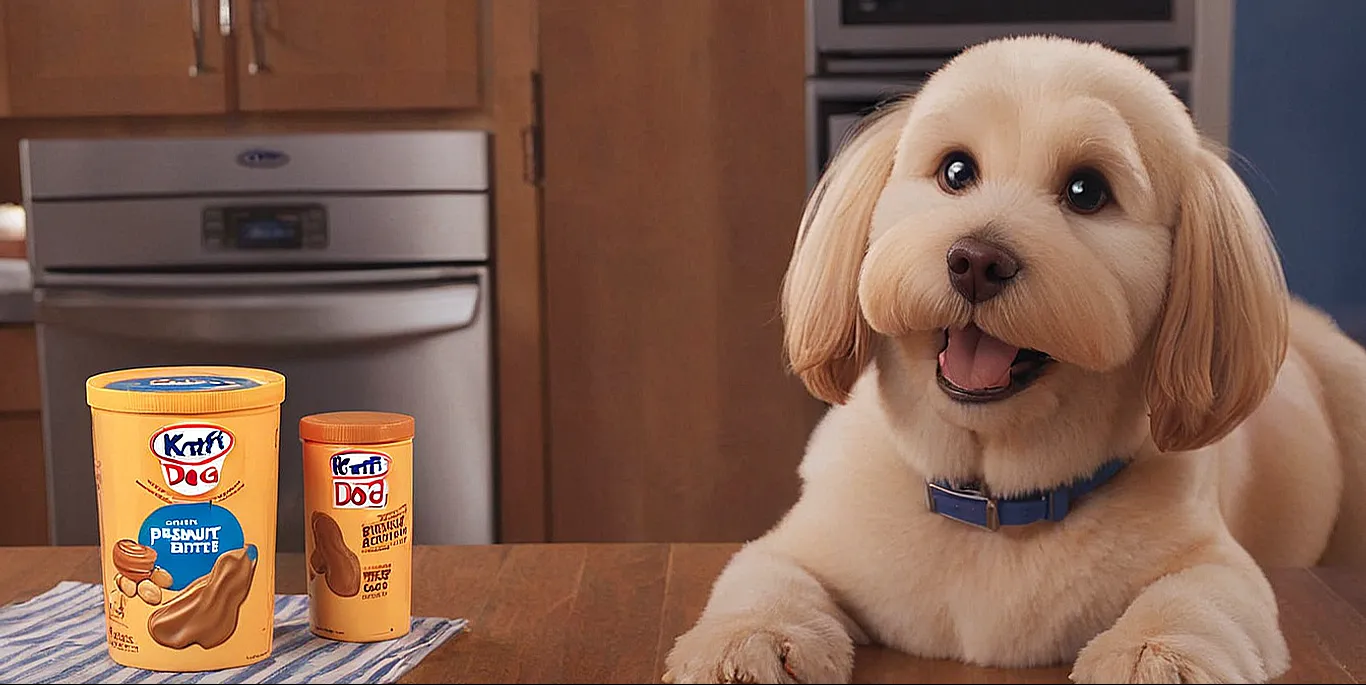Understanding Kraft Peanut Butter Ingredients
When it comes to understanding Kraft Peanut Butter ingredients, it’s important to take a closer look at what goes into this popular brand. Kraft Peanut Butter is made with high-quality peanuts, as well as a few additional ingredients to enhance flavor and texture. The exact ingredients may vary depending on the specific variety of Kraft Peanut Butter. By examining the ingredients list and nutritional facts, dog owners can ensure the safety and suitability of Kraft Peanut Butter for their furry friends.
Kraft Peanut Butter Ingredients Overview
Kraft Peanut Butter is made with high-quality peanuts and a few additional ingredients to enhance flavor and texture. While the specific ingredients may vary depending on the variety, Kraft Peanut Butter generally includes peanuts, sugar, hydrogenated vegetable oil, salt, and molasses. These carefully selected ingredients come together to create a smooth and creamy peanut butter that is loved by both humans and dogs alike.
Key Ingredients in Kraft Peanut Butter
Kraft Peanut Butter is made with a few key ingredients that contribute to its delicious taste and creamy texture. These include high-quality peanuts, sugar, hydrogenated vegetable oil, salt, and molasses. The combination of these ingredients creates a flavorful and smooth peanut butter that is enjoyed by both humans and dogs. It is important to note that while Kraft Peanut Butter is generally safe for dogs, it is always recommended to check for any specific allergies or sensitivities before introducing it into your pet’s diet.
Risks and Benefits of Feeding Dogs Peanut Butter
Feeding dogs peanut butter can have both risks and benefits. Some potential risks include the risk of obesity and weight gain due to its high-fat content. Additionally, some peanut butter brands may contain Xylitol, which is toxic to dogs. However, there are also benefits to feeding dogs peanut butter, such as providing them with a good source of protein and healthy fats. It can also be a great tool for training and mental stimulation. It is important to feed peanut butter in moderation and choose brands that are safe for dogs.
Potential Risks of Feeding Dogs Peanut Butter
Feeding dogs peanut butter can pose certain risks. The high fat content in peanut butter can lead to obesity and weight gain if given in excessive amounts. Moreover, some peanut butter brands may contain xylitol, a sweetener that is toxic to dogs. It is crucial to read labels carefully and avoid peanut butter products that contain this harmful ingredient. Moderation and cautious selection are key to keeping dogs safe when feeding them peanut butter.
Benefits of Including Peanut Butter in Your Dog’s Diet
Including peanut butter in your dog’s diet can have several benefits. Peanut butter is a good source of protein, healthy fats, and essential vitamins like B and E. It can also provide niacin, which aids in digestion and keeps your dog’s coat shiny. Additionally, the creamy texture of peanut butter can be enjoyable for dogs, making it a great treat or way to hide medication. Remember to feed peanut butter in moderation and choose brands without harmful ingredients like xylitol.
Determining the Safety of Kraft Peanut Butter for Dogs
When determining the safety of Kraft Peanut Butter for dogs, it is important to closely examine the ingredient list. Generally speaking, any peanut butter that does not contain harmful ingredients like xylitol should be safe for dogs. It is crucial to check the label and ensure there are no additives or sweeteners that could be potentially harmful to dogs. Consulting with a veterinarian can provide further guidance and assurance regarding the safety of Kraft Peanut Butter for dogs.
Factors to Consider Before Feeding Kraft Peanut Butter to Dogs
Before feeding Kraft Peanut Butter to dogs, there are several factors to consider. Firstly, it is important to check the label and ensure that the peanut butter does not contain any harmful ingredients like xylitol. Additionally, moderation is key, as excessive consumption can lead to weight gain and digestive issues. It is also essential to monitor your dog’s reaction and consult with a veterinarian before introducing any new food to their diet.
Consulting a Veterinarian about Kraft Peanut Butter for Dogs
It is always wise to consult with a veterinarian before introducing Kraft Peanut Butter or any new food into your dog’s diet. A veterinarian can provide personalized advice based on your dog’s specific needs and health conditions. They can also guide you on portion control and ensure that the peanut butter is safe for your dog to consume. A veterinarian’s expertise will help you make well-informed decisions regarding your dog’s nutrition and overall well-being.
Alternatives to Kraft Peanut Butter for Dogs
When looking for alternatives to Kraft Peanut Butter for dogs, there are several options to consider. Some dog-safe peanut butter brands include 365 Every Day Value Smooth, Teddie Super Chunky, and Poochie Butter. Additionally, you can make homemade peanut butter by grinding unsalted peanuts or using other nut butter varieties such as almond or cashew butter. Just be sure to avoid any peanut butter products that contain additives like xylitol, which can be toxic to dogs.
[17] [18]
Dog-Safe Peanut Butter Brands
Several dog-safe peanut butter brands are available in the market. Some trusted options include 365 Every Day Value Smooth, Teddie Super Chunky, and Poochie Butter. These brands offer natural peanut butter without added sugar or artificial sweeteners, making them safe for dogs to consume. It is important to read the label and ensure that the peanut butter is unsalted and does not contain any harmful ingredients.
Homemade Peanut Butter Options for Dogs
Many dog owners prefer to make their own peanut butter for their furry friends. Homemade peanut butter gives you full control over the ingredients and ensures that no harmful additives are present. To make homemade peanut butter for dogs, simply blend unsalted roasted peanuts in a food processor until smooth. This provides a healthy and tasty option for your four-legged companion.
Tips for Safely Introducing Peanut Butter to Your Dog
When introducing peanut butter to your dog, it’s important to do it safely. Here are some tips to keep in mind:
- Start with a small amount: Begin by giving your dog a small taste of peanut butter to see how they react. Observe them for any signs of an allergic reaction or digestive issues.
- Check the ingredients: Make sure the peanut butter you’re using doesn’t contain any harmful additives like xylitol. Stick to natural, unsalted peanut butter for the safest option.
- Use it as a treat or enrichment tool: Peanut butter can be a great way to reward your dog or provide mental stimulation. Spread a small amount on a puzzle toy or use it as a training reward.
- Watch for excessive consumption: While peanut butter can be a tasty treat, it’s important not to overdo it. Too much peanut butter can lead to weight gain and digestive issues. Moderation is key.
- Consult your vet: If you have any concerns about introducing peanut butter to your dog, it’s always best to consult with your veterinarian. They can provide personalized advice based on your dog’s specific needs and health conditions.
By following these tips, you can safely introduce peanut butter to your dog and ensure they are enjoying this tasty treat in a healthy way.
Ensuring Safe Consumption of Peanut Butter by Dogs
When feeding peanut butter to dogs, it’s important to ensure safe consumption. Owners should avoid giving their dogs excessive amounts of peanut butter, as it is high in fat and can lead to weight gain or digestive issues. It is recommended to start with small amounts and monitor your dog for any adverse reactions. Additionally, always check the ingredients of the peanut butter to ensure it does not contain harmful additives like xylitol. Consulting with a veterinarian can provide personalized advice on safe peanut butter consumption for your dog.
Monitoring Your Dog’s Reaction to Peanut Butter
When introducing peanut butter to your dog’s diet, it is important to monitor their reaction. Observe your dog for any signs of allergies or digestive issues after consuming peanut butter. Symptoms may include itching, vomiting, diarrhea, or difficulty breathing. If you notice any adverse reactions, it is best to discontinue feeding peanut butter and consult a veterinarian for further guidance. Monitoring your dog’s reaction will help ensure their safety and well-being.
Conclusion
In conclusion, Kraft Peanut Butter is considered safe for dogs and does not contain xylitol, a sweetener that can be deadly to dogs. It is important to always read ingredient labels and avoid feeding any products containing xylitol to your dog. As with any food introduced to your dog’s diet, it is recommended to consult with a veterinarian to ensure it aligns with their specific needs and dietary restrictions.
Summary of the Safety of Kraft Peanut Butter for Dogs
Kraft Peanut Butter is considered safe for dogs as long as it does not contain xylitol. Xylitol is a sweetener that can be toxic to dogs. It is important to always read ingredient labels and avoid feeding any peanut butter products that contain this ingredient to your dog. Additionally, it is recommended to consult with a veterinarian to ensure that Kraft Peanut Butter aligns with your dog’s specific dietary needs and restrictions.
Recommendations for Dog Owners Regarding Peanut Butter Consumption
When it comes to feeding your dog peanut butter, it’s important to follow these recommendations for their safety.
- Read the ingredient label carefully and choose peanut butter that does not contain xylitol.
- Feed peanut butter in moderation as a treat, rather than as a regular part of their diet.
- Introduce peanut butter gradually to ensure your dog doesn’t have any adverse reactions.
- Monitor your dog while they consume peanut butter, especially if it’s their first time.
- Consult with your veterinarian to ensure that peanut butter aligns with your dog’s specific dietary needs and restrictions.
By following these recommendations, you can enjoy sharing peanut butter with your furry friend while keeping them safe and healthy.




